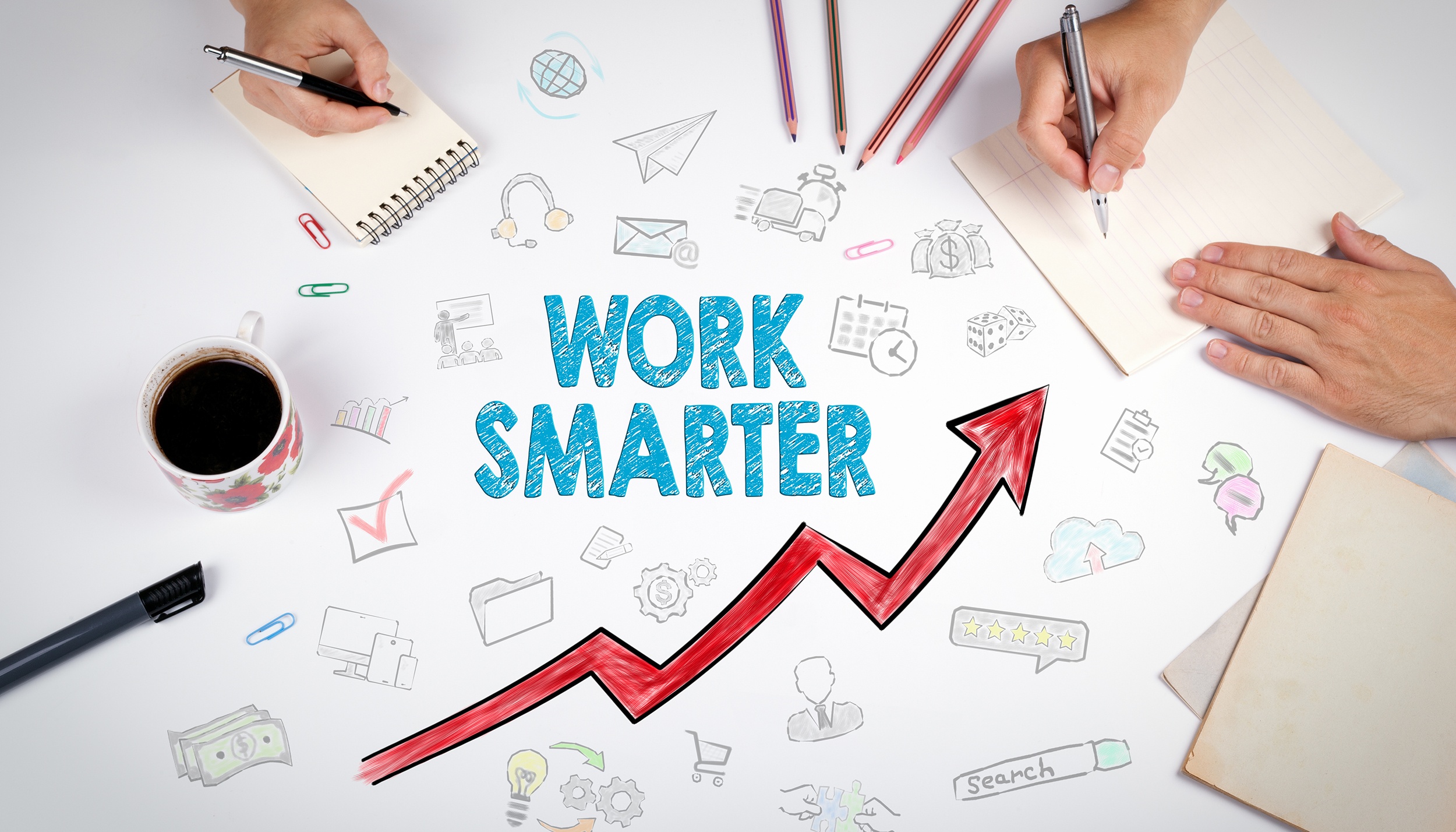Work Smarter Not Harder
High productivity is a priority for businesses and individuals alike. It makes goals achievable and success believable. However, with so many distractions constantly fighting for our attention, it can be easy to lose drive.
Here are three tips for optimizing productivity and time:
- Go Proactive, Not Reactive
Most of us have learned the hard way that getting behind can have quite the domino effect, so before a deadline passes you by like the Road Runner, know what you’re in for. Look ahead to projects that are coming down the pipeline and prepare. Oftentimes, larger projects have longer timelines, so you should be able to see what deliverables are expected of you over the course of the next few months. This will also allow you to identify possible pain-points early on. Bottomline: plan.
If your job requires a lot of computer work, consider utilizing a project management platform that can help you better organize your tasks. There are many to choose from today; weigh your options and select the platform that best serves you and your needs.
As you put your proactive foot forward, you’ll have more time for setting goals, pinpointing possible setbacks, strategizing and, ultimately, identifying true ROI. These efforts result in higher productivity, more accurate measurements, and stronger performance in the future.
- Take Breaks
Yes, you read that right: Stop work so you can work harder.
Imagine driving a car and never leaving fifth gear. The car would either stall or take forever to get back up to speed at every stop light. This is essentially how we run our bodies throughout the day when we don’t allow ourselves a moment to downshift.
One of the biggest drivers in productivity is renewed energy. Taking a midafternoon walk, visiting the gym or catching up with friends over lunch can all be great solutions to gaining some headspace. In fact, many modernized workplaces even offer “wellness rooms” where employees can take naps and/or mediate. (If your company hasn’t implemented a space like this yet, this may be one for the suggestion box.) The point is, there’s no shame in taking a little time to yourself in the midst of the workday; a little siesta can only help.
- Ask for Help, Delegate
Knowing when enough is enough is critical for employers and employees alike. Everyone has a threshold, and though it can be super subjective, it remains constant to each individual.
Employers, when an employee expresses that they’re feeling overwhelmed and/or at a loss, take the comment seriously and work together to strategize a plan for working through it. This effort will mean a great deal to your employee.
Employees, don’t feel like saying “yes” is the only option. Time management plays a huge role in productivity, and there’s no denying the excitement of building something from the ground up or the opportunity to learn something new for projects that are out of scope. So, if you’d like to take on a project, express your interest and a practical timeline for when you can start and complete the project. If this seems realistic for you and your boss, great. If not, discuss options for reorganizing what’s currently on your plate, delegate to colleagues or call in for reinforcements. Fresh perspectives can provide the push needed for moving a project to its next phase.
Whether you try all three tips or a variation of just one, remember productivity starts with understanding what works best for you.

Written by: Taylar Ramsey
Taylar Ramsey is a marketing independent contractor with specialty in strategic campaign design and execution, event planning and creative copywriting. A long-time friend of Human Capital Media, she regularly contributes content surrounding external promotions, internal development and outstanding achievements – all reflective of Human Capital Media’s vision, “Better workplaces, better lives.”


